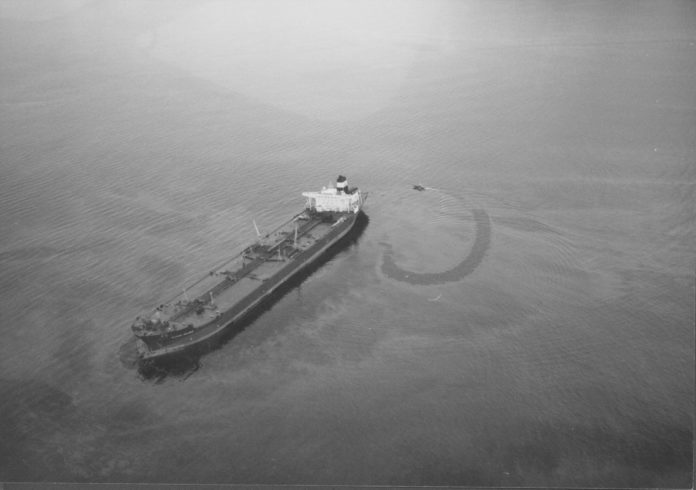
Mike Mickelson was 5 years old when the Exxon Valdez Oil Spill happened. He doesn’t really remember a time in Cordova before the spill. He recalls his parents talking about it — his family’s lodge relied on ecotourism.
Mickelson does remember at 7 years old seeing oil marks on the high water line on the rocks while out in Prince William Sound.
Fisheries were destroyed, but Mickelson said that as a kid, you don’t fully understand the environmental impacts but you do notice the social effect.
As an adult invested in several fisheries as a commercial fisherman, he now has an understanding of how devastating and depressing an event like this could be, particularly the psychological impact of losing your job and means of supporting your family through something outside of your control.
He recounts that his mother always said she was able to get over the death of her own mother, but was never able to get over the spill.
However, the lasting hurt in the region isn’t talked about enough, according to Mickelson. He said he learned more about the spill from books and podcasts, than from locals who lived through the experience.
He owns that.
“I still don’t really like talking about it,” he said. “It’s still a sore spot and it’s not going to go away.”
He said the way Americans think about oil spill disasters now is “pretty disheartening.” As if the crisis of 1989 has been forgotten, despite the scientific community knowing so much more now about how devastating spilled oil is to the environment. He cited the cleanup effort after the Deepwater Horizon oil spill in 2010.
“We are all complicit in the use of oil, especially in the fishing industry … it’s going to take a long time before we can switch over to electric in some of these fisheries, but there’s definitely a way to do it better,” Mickelson said.
The long term takeaway for Mickelson is that “we need to continue to be ready … we have a responsibility as people who use this resource.” We can’t cut back on our responsibilities to protect from future oil spills, he said, especially with the way the climate is changing.
“There’s long-term impacts here,” he said. “It’s our responsibility to keep standing up to these big corporations and demand that they continue to strive to be better in their practices to prevent major disasters like this.”














